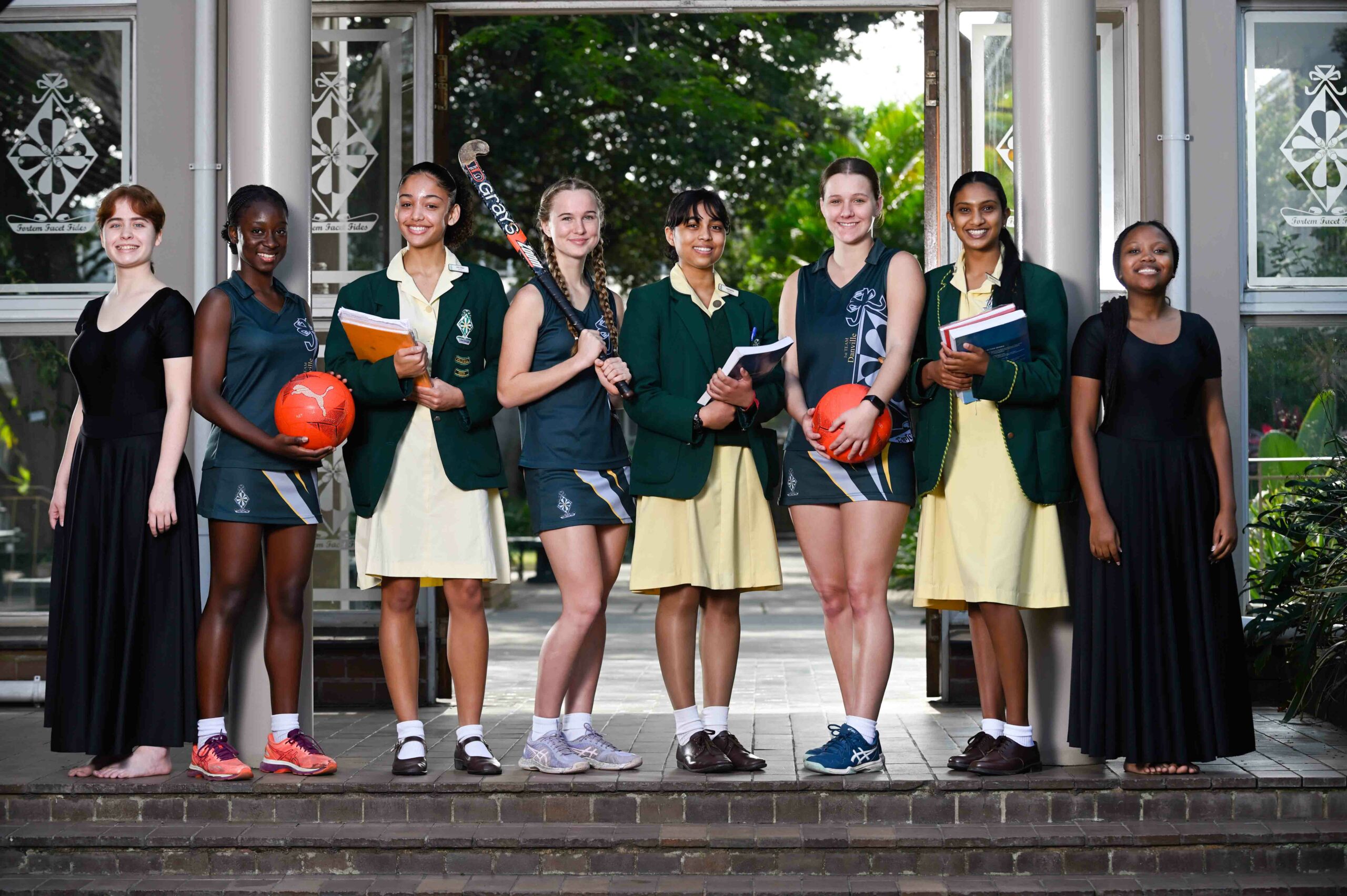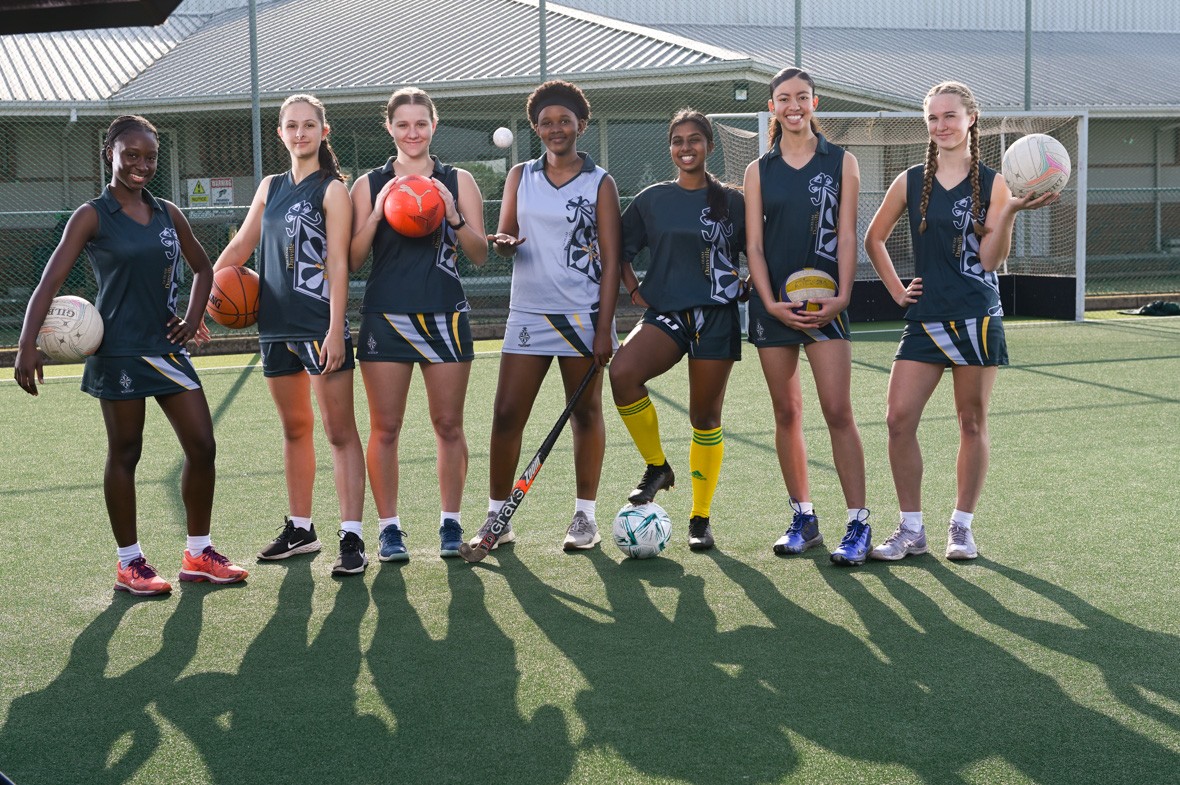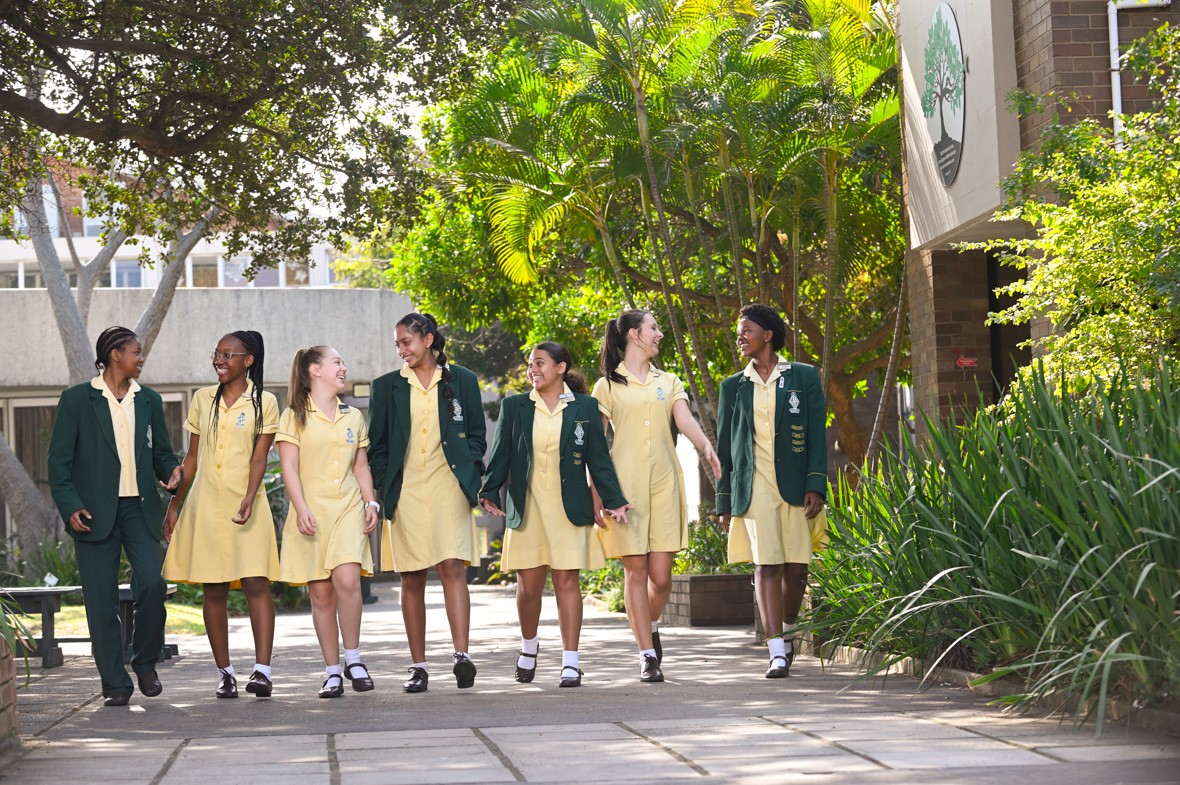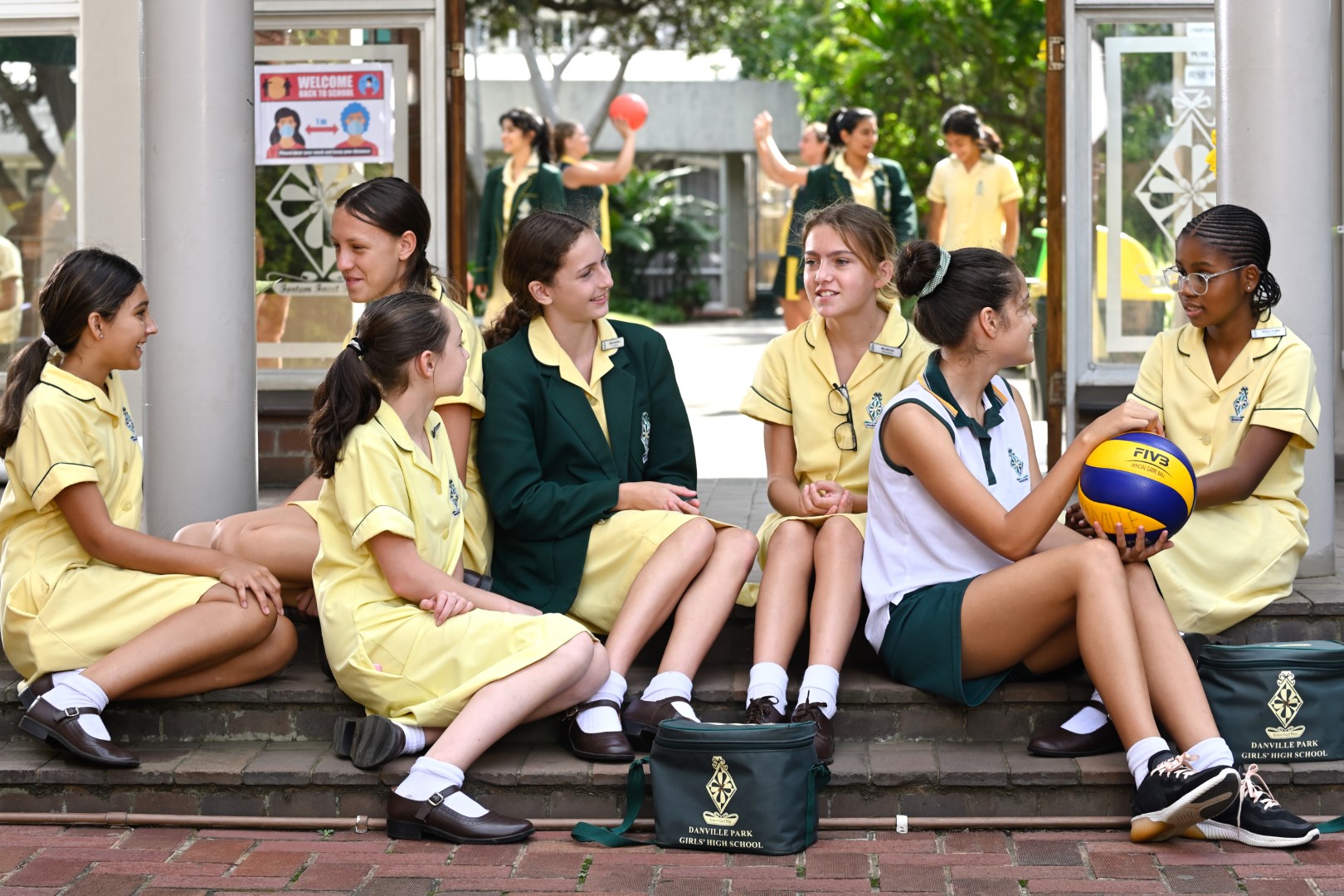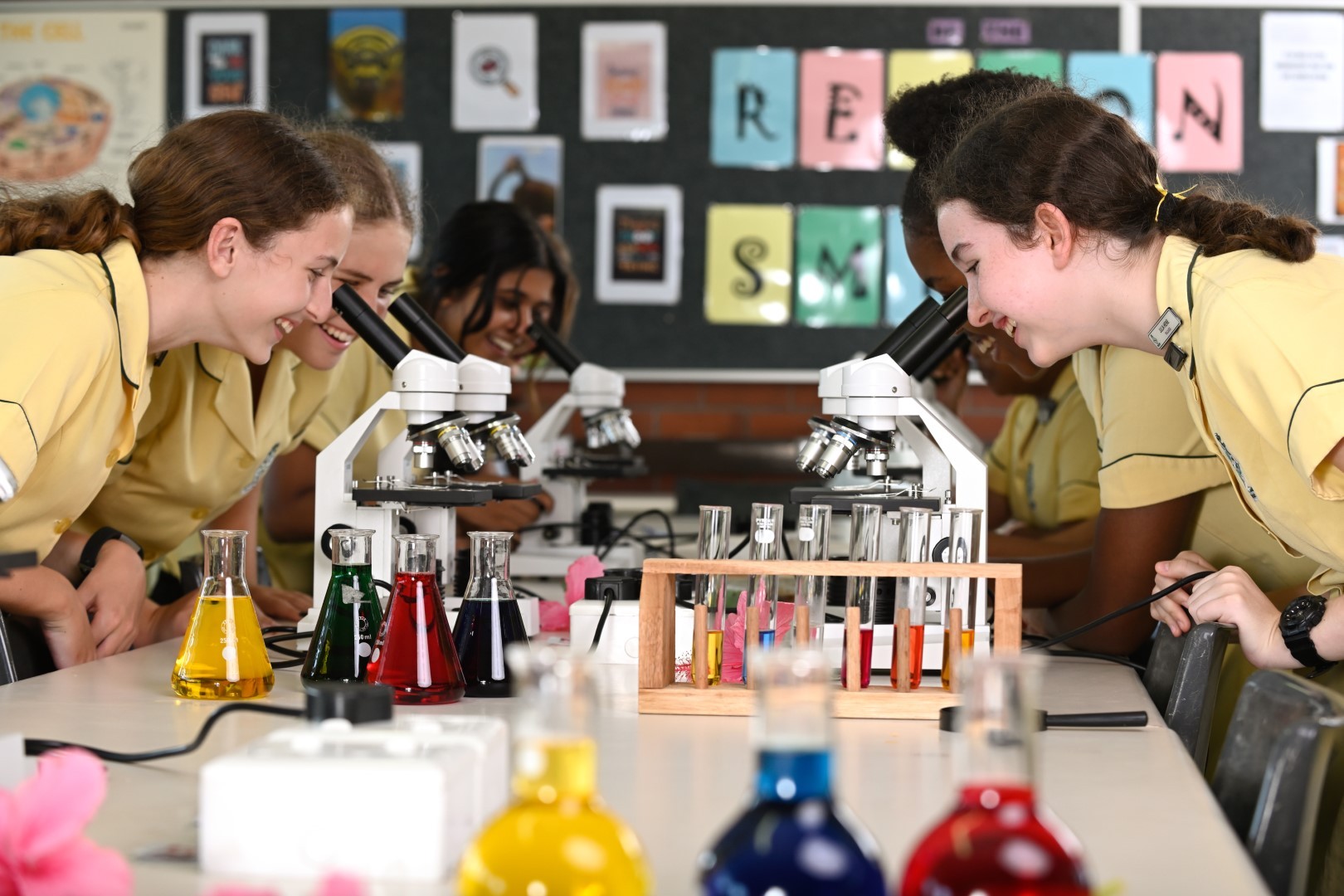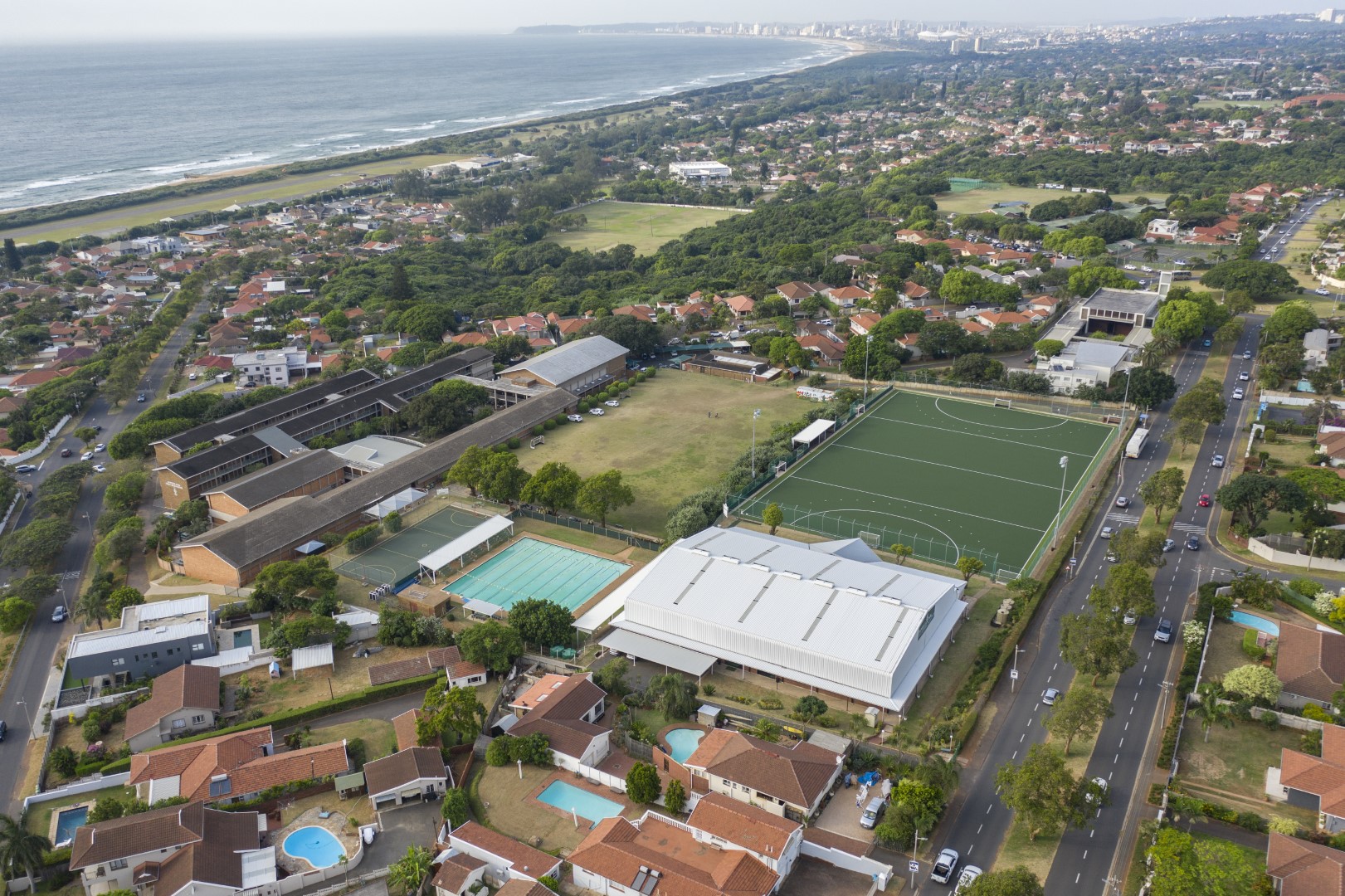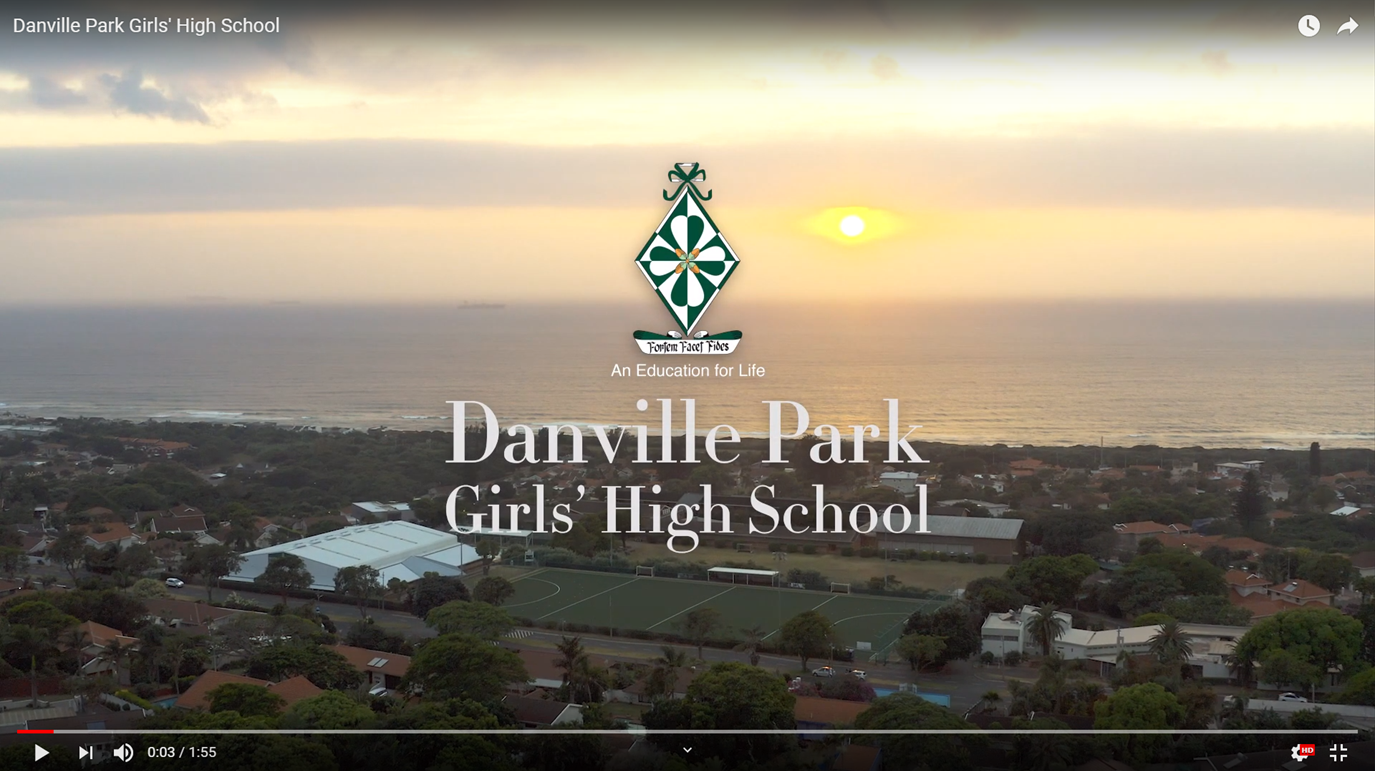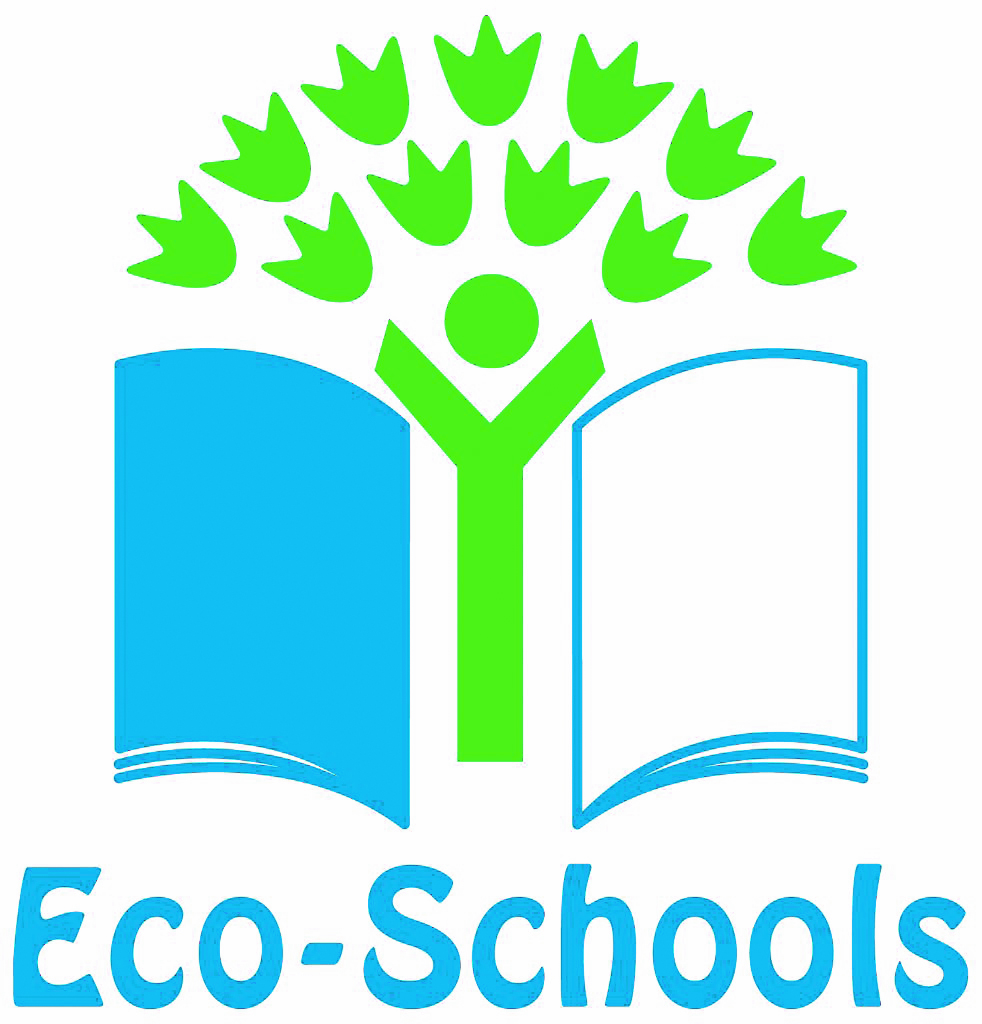Environmental
ENVIRONMENTAL FACET AT DANVILLE
At Danville Park Girls’ High School, we aim to raise awareness of current environmental issues and encourage each member of the Danville family to commit to sustainability, both at school and at home, for life. We also aim to create a culture of caring for our environment and making a difference by supporting local environmental organisations. Our goal is to have environmental issues integrated into every learning area of the curriculum.
We endeavour to make Danville learners realise that they are the face of a new generation who urgently need to show passionate commitment to ensuring the health of our planet as we cut consumption – buy less and use less – whilst reducing, reusing, recycling and even refusing if need be.
Danville has always had an environmental conscience. Since the 1970’s, Danville has had very active environmental societies in various forms. Participation in the annual Science Conservation Symposium culminated in the proclamation of Virginia Bush Nature Reserve in 1985.
ENVIROMENTAL FACET STRUCTURE:
The environmental facet at Danville is overseen by environmental co-ordinator, Mrs Mann.
Two Environmental Prefects are appointed annually to oversee the environmental facet. They meet weekly with a group of between 12 and 14 Grade 11 Environmental Monitors. The different portfolios include litter and recycling, worm farm, vegetable garden, water and electricity, environmental days and environmental assembly. Class Prefects also pass on any important environmental information or encourage classes to participate in various drives (e.g. paper collection drive). The school’s RCL has also become involved in this facet and has spearheaded a number of environmental initiatives. There is an RCL representative for every class.
ENVIRONMENTAL SOCIETY:
The current Environmental Society was started in 2000 and is still going strong. The society, headed by a Chair and Vice-Chairperson, meets weekly and is open to learners from all grades. Activities include hosting speakers on anything from snakes to bats and frogs, to planting indigenous seeds and making products out of waste. An annual outing to places like Steinbank Nature Reserve, CROW, Botanic Gardens and Palmiet Nature Reserve or a guided hike along the 11 km Fish Eagle Trail are always a highlight. Learners are given a greater appreciation of natural areas by experiencing such areas first hand.
WESSA ECO-SCHOOLS PROGRAMME:
Danville is a flourishing Eco-School. We work continuously towards maintaining our Eco-Schools status through creating environmental consciousness among staff, learners and management. Danville has been involved in the programme since 2004 and has been awarded a certificate and flag every year for our sustained environmental projects. Danville was awarded the International Flag Decade Award in 2019 for 15 years of participation. Recent themes that were covered include: 2015 – water; 2016 – waste; 2017 – health and well-being; 2018 – marine and coasts; 2019 – biodiversity and nature. Our theme for 2020 is climate change.
We are very proud of our International Flag status which earned us the following accolade from WESSA (the Wildlife and Environment Society of South Africa) in 2019: “What a pleasure it was assessing your 15-year journey to sustainability. We can see and appreciate how much love went into the compilation of this portfolio as well as the environmental transformation at Danville Park Girls’ over these past 15 years. Your long-standing commitment and enthusiasm to the environmental cause is something very special! For your dedication and love for our planet we are thrilled to award you with a much deserved International Flag Decade Award! Congratulations and thank you!”
WATER EXPLORER PROGRAMME:
The Water Explorer (WE) Programme is an international internet based programme where various challenges are completed for points. The programme not only looks at direct ways that water can be saved. It also addresses secret water (hidden water) used to make products/grow food etc., global availability of water and water pollution. Danville has participated in the WE Programme since its inception in 2015, when Danville was placed first in South Africa. Danville was also a South African finalist in 2017. One of the main features of this programme for Danville is that the whole school was included in the programme in 2017 when all teachers and learners were involved in at least one challenge. Some of the WE challenges have now been integrated into the curriculum in various Learning Areas.
BEACH CLEAN-UPS:
By participating in beach clean-ups, we are helping to preserve the oceans biodiversity. The school has participated in the International Coastal Clean-up since 2003. More recently, locally organised clean-ups, such and the KZN Beach Clean-up and a clean-up organised by the La Lucia Mall management company have also been supported.
INDIGENOUS GARDENS:
The gardens at Danville have always been attractive and well maintained. Greater environmental awareness has, however caused a whole re-think about garden planning, and Danville has answered the call to ‘go indigenous’. In 2011 all Category 1 Aliens were finally removed, and Danville’s gardeners set about proving that indigenous can also be colourful and appealing. Our many indigenous trees are labelled and new trees are planted periodically.
ENVIRONMENTAL PRESENTATIONS:
The school invites a number speakers to address the whole school on various topics of environmental interest. In 2018, Monkey Helpline addressed the school on monkeys and Janet Solomon showed her award winning move called Becoming Visible. This highlighted the effect of prospecting for gas offshore on marine organisms. In 2019 we were addressed by various organisations. Chic Mama’s gave us an in depth account of the damaging effects of fast fashion on the environment. Blood Lions ‘YouthForLions’ highlighted some shocking practices going on in South Africa from canned lion hunting to trade in lion bones for traditional medicines. Project Rhino spoke about rhino poaching and what their organisation is doing to try and stop the poaching. Founder Foods gave us a highly motivational talk on natural foods and how food impacts on our health and welfare, our community and the environment.
FUNDRAISING FOR ENVIRONMENTAL ORGANISATIONS:
Every year, one of the school’s fundraisers is dedicated to supporting a local environmental organisation. Organisations supported in the past include Primates Africa, SANCCOB’s Adopt a Penguin, CROW, Monkey Helpline, Thula Rhino Orphanage, Project Rhino and BREATHE.
ENVIRONMENTAL EXCURSIONS:
Environmental excursions are organised for entire grades and include the Beachwood mangroves, Mariannhill Landfill site (grade 11), uShaka Marine World, Sharks Board and Thomson’s Bay.
RECYCLING:
Recycling has been part of the school ethos since 2005 when the school started recycling paper. Recycling bins are set up around the school for cans, plastic, glass, batteries and computer cartridges. Organic waste from the tuck shop and egg boxes from Consumer Studies are turned into compost and worm wee in our worm farm. This is used on the school gardens.
Every classroom has a paper recycling bin. A weekly inter-class paper recycling competition stimulates rivalry to earn a prize each term and a trophy at the end of the year.
Grade 11 Life Sciences learners visit the Mariannhill Landfill Site every year. Waste management forms part of the grade 11 and 12 curriculum. The Grade 11’s than do a project on waste management in their homes.
The whole school was involved in making ecobricks from plastic waste in 2018. These have been made into stools for the computer room.
Danville has benches, tables and monkey-proof bins made out of recycled plastic.
SAVING WATER:
Rainwater harvesting tanks:
Danville has nine rainwater harvesting tanks at school with a total capacity of 43 000 litres. One of
the tanks is linked to the bathrooms to supply water to the toilet and basins. The others are used to water the school gardens, vegetable garden and fill the swimming pool.
Cooldrink bottles in school toilet cisterns:
These were installed in 2016 in order to reduce the amount of water used with each flush.
SAVING ELECTRICITY:
Solar geyser:
A solar geyser was installed on the staff quarters in 2009 in order to save electricity.
Energy reduction:
Much of the school’s lighting had been changed to energy efficient CFL or LED to save energy usage. Lights are on timers in passages to save electricity. Computers are turned off and unplugged at the end of each day. Lights, fans and data projectors are turned off when not in use.
VEGETABLE GARDEN:
The school has had a vegetable garden for many years. Vegetables are planted using permaculture techniques and vegetables are donated to the school feeding scheme that we support, the Domino Foundation. Only vegetables that would not be eaten by monkeys were planted in the past as we have a troupe that visits the school on a daily basis. A 5000 litre water tank is connected to our garden for watering. Danville has been awarded funding as part of the One Planet Water Explorer UN Global Search for Sustainable Schools to establish a monkey-proof enclosure around our vegetable garden in 2020, so a wider variety of vegetables can be planted.
DANVILLE’S GREEN BUSINESS:
Danville’s green business, called Originally Made Green (OMG), makes many different products out of waste. The business was started in 2012. Learners bring waste items from home. The Environmental Society spends many hours making products which include bracelets and earrings from cereal boxes, containers from coke bottles, book marks from ice-cream sticks, pencil holders from jars and tea bags creatively painted and made into cards. These are sold to raise funds for different environmental organisations.
TUCK SHOP:
A few years ago, the RCL undertook a project to look into the menu/ products sold at the tuck shop in order to remove/ reduce unhealthy food items sold at the tuck shop and to make sure that mainly healthy food was sold. Vegetarian and Halal options are also available.
Danville’s tuck shop went plastic straw free in 2018. Paper straws are now sold. Plastic popcorn packets have also been exchanged for paper bags. The tuck shop also supports meat free days occasionally.
SOUTH AFRICAN INSTITUTE OF INTERNATIONAL AFFAIRS ENVIRONMENTAL SUSTAINABILITY PROJECT (SAIIA ESP)
The SAIIA ESP is an essay competition where learners work in teams of three to write a research paper that examines the cross cutting and interconnected issues of environmental sustainability. The ultimate goal is to put forward recommendations and possible solutions for environmental sustainability at a local and international level on various topics. Danville has participated since 2011. Best teams are invited to participate in the National Young Researchers Symposium each year.
TRUST FOR SUSTAINABLE LIVING ESSAY COMPETITION:
The Trust for Sustainable Living (TSL) Schools Essay Competition is an international competition with learners from many different countries around the world participating. Danville learners have participated since 2015.
ONE PLANET CITIES INITIATIVE:
In 2019, Danville was invited to showcase the school on this global platform. This is an exciting initiative which is being piloted in four cities around the globe, one of these being Durban.
The initiative uses an innovative online platform to create sustainability action plans in an effort to strive for sustainable living. Danville has the opportunity to show what we as a school are contributing towards Durban’s aspiration ‘to be the most caring, liveable city in 2030’.
Web Link – https://www.oneplanet.com/futuremakers/Danville_Park_Girls_High_School
AWARDS AND RECOGNITION:
eThekwini Water and Sanitation Conference:
A team of Danville learners presented at the Ethekwini Water and Sanitation Conference in 2014 and 2016. A Danville learner was named as second best speaker in 2014.
Eco-Schools Green Business Awards Competition:
In 2012, Danville started a green business called Originally Made Green or OMG, making various products out of waste. Danville entered the Eco-Schools Green Business Awards Competition. Danville were proud joint national winners for their efforts.
WESSA Eco-Schools:
Danville has been involved in Eco-Schools since 2004 and has been awarded a certificate and flag every year for their environmental efforts.
Outstanding teacher award:
Mrs Mann (the Environmental Co-Ordinator at Danville) was awarded an outstanding teacher award in 2018 by WESSA Eco-Schools.
The Trust for Sustainable Living Schools (TSL) Essay Competition:
Danville entries (up to 10 per year) have received honourable mentions (top 33%) or been finalists (top 10%) over the years. In 2018, Anisa Esat was joint second and in 2019, Keziah Bahadur joint fourth place in the world.
Royal Schools Essays:
Danville learners have been submitting essays on a variety of topics, some environmental (e.g. water), over the years. Danville learners have been finalists on a few occasions.
Water Explorer Programme:
Danville were proud South African Water Explorer winners in 2015 and finalists (top 5) in 2017.
South African Institute of International Affairs Environmental Sustainability Project (SAIIA ESP):
Danville learners have participated in the SAIIA ESP since 2011. Danville was awarded a best speaker award in 2011, 2012, 2015 and 2016. The team were the winning provincial delegation in KZN in 2013 and 2014. The team were awarded a silver award for second place nationally in 2017 and a Bronze award for third place nationally in 2018 and 2019.
One Planet Water Explorer UN Global Search for Sustainable Schools:
Danville was privileged to have been selected as one of seven schools in South Africa in the Global Search for Sustainable Schools for our environmental efforts over the years. We have been awarded funding to up-scale our vegetable garden and make it monkey proof.
